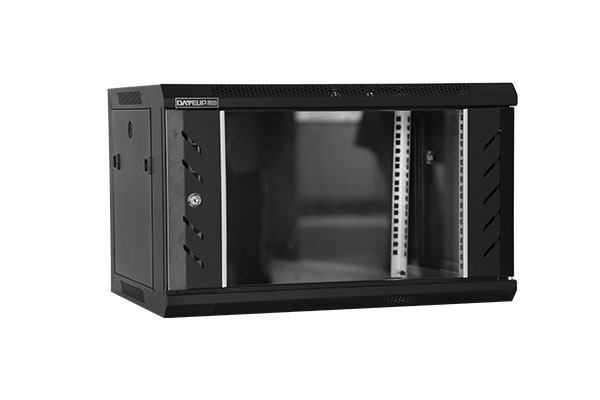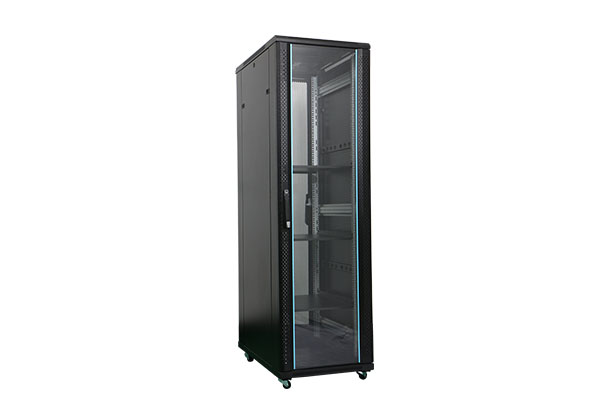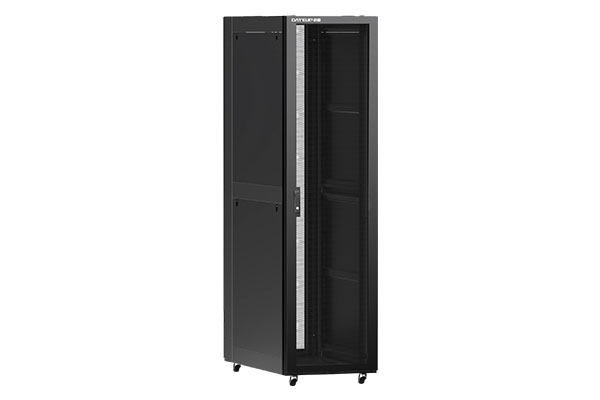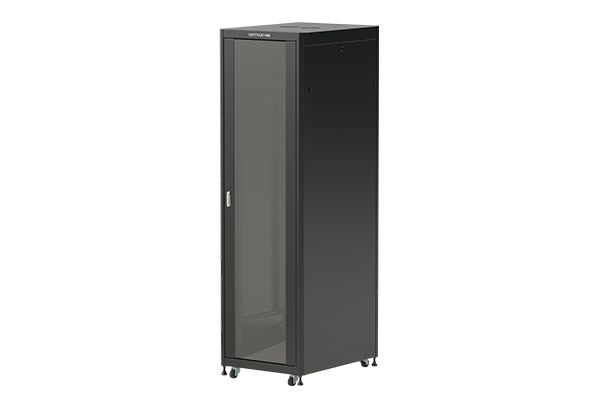What are the special requirements for Data Center Cabinets with high-density equipment deployment?
Release Time : 2024-09-26
In today's digital age, the importance of data centers is becoming increasingly prominent. There are many special requirements for Data Center Cabinets with high-density equipment deployment.
First, heat dissipation performance is crucial. High-density equipment generates a lot of heat. If the heat dissipation is poor, it may cause equipment failure or even damage. Therefore, an efficient heat dissipation system is required, such as powerful fans, liquid cooling technology, etc., to ensure that the temperature in the cabinet is always within the range of safe operation of the equipment. At the same time, good ventilation design is also essential to ensure that hot air can be discharged in time and cold air can flow in smoothly.
Secondly, the power supply needs to be stable and reliable. High-density equipment consumes a lot of power, and the cabinet must have sufficient power capacity and a reasonable power distribution layout. Equipped with high-quality power distribution units (PDUs), it can accurately monitor and manage power distribution to prevent overload and voltage fluctuations.
In addition, the space utilization rate should be high. To place a large number of equipment in a limited space, the design of the cabinet should be compact and reasonable. The modular design allows the internal structure to be flexibly adjusted according to needs, facilitating the installation and maintenance of equipment. At the same time, good wiring management can also save space and avoid the impact of cluttered cables on equipment operation and heat dissipation.
In addition, security protection cannot be ignored. For high-density cabinets, a sturdy shell and a reliable door lock system are required to prevent unauthorized access. It should also be equipped with complete fire protection facilities, such as an automatic fire extinguishing system, to deal with possible fire risks.
Finally, the monitoring and management system should be intelligent. It can monitor the temperature, humidity, power and other parameters in the cabinet in real time, as well as the operating status of the equipment. Once an abnormal situation occurs, an alarm will be issued in time and corresponding measures will be taken to ensure the stable operation of the data center. In short, Data Center Cabinets with high-density equipment deployment have strict special requirements in terms of heat dissipation, power, space utilization, security and monitoring to meet the efficient operation needs of modern data centers.
First, heat dissipation performance is crucial. High-density equipment generates a lot of heat. If the heat dissipation is poor, it may cause equipment failure or even damage. Therefore, an efficient heat dissipation system is required, such as powerful fans, liquid cooling technology, etc., to ensure that the temperature in the cabinet is always within the range of safe operation of the equipment. At the same time, good ventilation design is also essential to ensure that hot air can be discharged in time and cold air can flow in smoothly.
Secondly, the power supply needs to be stable and reliable. High-density equipment consumes a lot of power, and the cabinet must have sufficient power capacity and a reasonable power distribution layout. Equipped with high-quality power distribution units (PDUs), it can accurately monitor and manage power distribution to prevent overload and voltage fluctuations.
In addition, the space utilization rate should be high. To place a large number of equipment in a limited space, the design of the cabinet should be compact and reasonable. The modular design allows the internal structure to be flexibly adjusted according to needs, facilitating the installation and maintenance of equipment. At the same time, good wiring management can also save space and avoid the impact of cluttered cables on equipment operation and heat dissipation.
In addition, security protection cannot be ignored. For high-density cabinets, a sturdy shell and a reliable door lock system are required to prevent unauthorized access. It should also be equipped with complete fire protection facilities, such as an automatic fire extinguishing system, to deal with possible fire risks.
Finally, the monitoring and management system should be intelligent. It can monitor the temperature, humidity, power and other parameters in the cabinet in real time, as well as the operating status of the equipment. Once an abnormal situation occurs, an alarm will be issued in time and corresponding measures will be taken to ensure the stable operation of the data center. In short, Data Center Cabinets with high-density equipment deployment have strict special requirements in terms of heat dissipation, power, space utilization, security and monitoring to meet the efficient operation needs of modern data centers.







